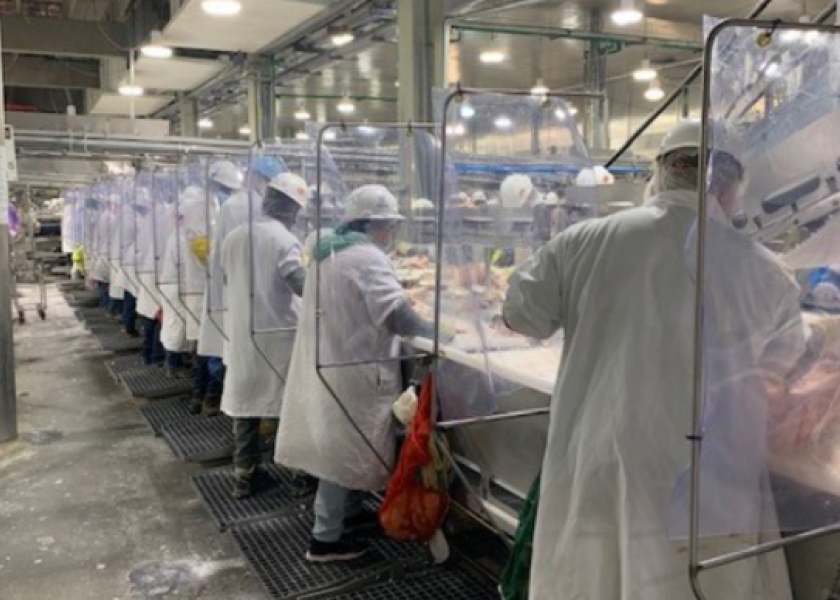Labor Shortage Key To Food Inflation, Meat Institute Says

The labor shortage is a significant factor driving food prices higher. That’s the testimony of the North American Meat Institute in a House Ag Committee hearing, “The Immediate Challenges to our Nation’s Food Supply Chain.”
“Just six weeks ago, the Biden Administration tried to blame the meat and poultry industry for the rising cost of food,” said Julie Anna Potts, President and CEO of the North American Meat Institute. “Today, the Congress will hear from other food manufacturers, shippers, input suppliers, growers and retailers enduring the same labor shortages up and down the food supply chain that are driving the record cost of food at the holidays.”
Meat Institute member are still recovering from the pandemic, which increased labor challenges at the same time consumer demand was increasing. The surge in demand happened while packers’ ability to process livestock was experiencing operational constraints, and has continued into this year because labor availability has similarly affected the packing industry’s ability to operate at full capacity.
As a solution, the Meat Institute says it has supported legislation to allow the meat and poultry industry access to an expanded, year-round agricultural guestworker program because the current, seasonal nature of the program fails to meet industry needs.
Throughout 2021, even as the comprehensive COVID-19 protections instituted by the meat industry since the spring of 2020 successfully lowered transmission among meatpacking workers and held case rates lower than case rates in the general U.S. population, worker shortages have persisted. The Meat Institute regularly hears from member companies challenged with 20 percent absenteeism on any day, as François Léger of FPL Food testified before the House Agriculture Committee on October 7.
In addition to labor, Potts outlined additional challenges to meat and poultry production, which includes ports congestion. The Meat Institute supports the Ocean Shipping Reform Act of 2021. Addressing this crisis also requires improving port efficiencies. Recent announcements by the Ports of Los Angeles and Long Beach to extend hours of operations must be matched with an adequate supply of labor, including truck drivers, along with extended warehouse hours to improve cargo flows. Urgent action is especially critical to enhance current port capacity, including using nearby empty lots for container storage and unloading, along with inland loading points.
The Meat Institute also expressed concern about the vaccine mandate for federal employees and contractors. The group said that if significant numbers of federal inspection personnel at USDA’s Food Safety and Inspection Service decline to get vaccinated, it will compound the inspector shortage and result in slowdowns at processing plants. Likewise, NAMI has similar concerns about vaccine requirements creating labor shortages for federal contractors, such as the rail lines and trucking industry.







